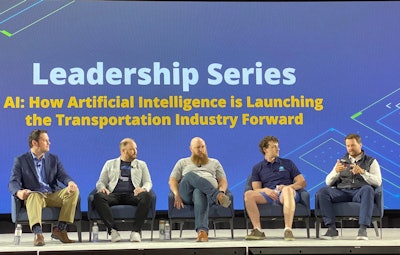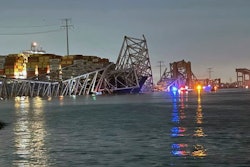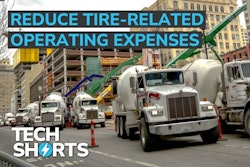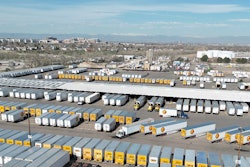
Ryan Schreiber recently advised the owner of a trucking company to automate the first part of the conversation with his drivers. He said the owner, struggling to grow his company because he didn’t have enough time to talk to all of his drivers, understands the importance of having personal touchpoints with drivers for the sake of retention.
Schreiber, chief growth officer at Metafora, a technology consulting firm focused on transportation, logistics and supply chain strategy, said this is a good example of where artificial intelligence can be implemented to help grow business.
Driver attrition is hovering around 100%, said Chris Torrence, chief strategy officer at Optym, which provides optimization solutions for transportation companies.
“What if you just had more time to talk to those drivers,” Torrence asked. “What if we enable 80% of that operator's job that's just redundant and repetitive, let the calculator take over, and then free up that time to develop relationships with drivers and see how retention rates improve? That’s human centric.”
Human centric was the focal point of the conversation during the panel discussion on how artificial intelligence is launching the transportation industry forward at the recent Trimble Insight 2023 Tech Conference and Expo in Las Vegas. AI is a mega trend across all industries, especially with the recent buzz around ChatGPT. The panel discussed how AI applies to the transportation industry with its many use cases, how it should be implemented and the effects it will have on trucking businesses.
Its impact was the hottest topic as panelists reassured the audience that – just like how autonomous vehicles will not replace drivers – AI is not going to replace jobs.
Torrence said it’s about leveraging the best of man and using machines to augment where it makes sense. Schreiber said the industry still needs humans to do human things like problem-solving and building relationships while AI can automate the repetitive, mundane tasks.
“The word augment the best way to describe this,” said Trevor Ward, a data scientist at Rippey.AI, a company that automates conversations and documents for the global logistics industry. “Repetitive requests. That’s where I see the application of AI, and that’s what scales. It’s not the, ‘I want to call someone and talk about the NFL.’ That’s what we should be doing, and that’s the fun part of the job.”
Ward said transportation and logistics companies need to focus on solving one pain point at a time using AI. Dispatching, planning and pricing were some of the examples given during the discussion.
Torrence said it’s all about incremental value; implement a little at a time because AI isn’t going to solve everything at once. There are many branches of AI, and the industry is more ready for some than others, Schreiber added.
“It's about finding that balance between what are humans really good at and how that impacts cost, and then increasing opportunities with technology to really be able to create more with the same number of people or less,” he said.
Torrence said the first step to implementing AI is getting buy-in at the executive level, followed by employees; educate them on how it actually works so they understand they’re not being replaced but enabled to do more. He said one dispatcher without AI models turned on can do 80 loads per day, but one dispatcher with AI on can handle 3,200 loads per day.
“Managing a trucking network or logistics network is like playing 1,000 games of chess all at the same time,” he said, and AI can help ease the load.










